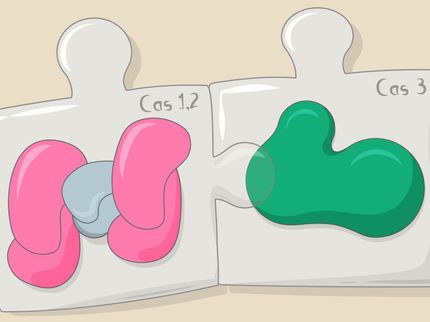Ceragenix Compound Demonstrates Activity Against MRSA Biofilm
Advertisement
Ceragenix Pharmaceuticals, Inc. announced that in vitro testing performed by MBEC BioProducts has shown that its Ceragenin(TM) compound, CSA-13, was over 100 fold more effective in eradicating a methicillin resistant Staphylococcus aureus (MRSA) biofilm than vancomycin.
The testing was performed by MBEC BioProducts, an independent testing laboratory located in Calgary, Canada, that has developed specialized methods and devices for testing the efficacy of compounds against biofilms. The device used in the testing allows the growth of biofilms from the same organism, such as Staphylococcus, in multiple wells for side-by-side comparisons of antimicrobial drugs in varying concentrations. Using the MBEC(TM) Assay, an MRSA biofilm was grown for 24 hours and then exposed to various concentrations of CSA-13 and Vancomycin. While Vancomycin is highly potent against free living or planktonic MRSA bacteria, it is unable to eradicate the MRSA bacteria in the form of biofilms. In contrast, CSA-13 was able to completely eradicate the MRSA biofilm at a very low concentration and showed a greater than 100 fold effect in this model relative to Vancomycin.
MRSA infections are of growing concern as approximately 70 percent of all staphylococcus infections in persons admitted to hospitals are now resistant to the methicillin class of antibiotics. MRSA infections may be spread by close physical contact with infected persons or by contact with towels, wrestling mats or even computer keyboards on which the bacteria are present. In the case of medical device infections, bacteria from the patient's own skin or from health care workers can colonize medical devices, causing life-threatening infections.
Ceragenins(TM), or CSAs, are synthetically produced small molecule chemical compounds comprised of a sterol backbone with amino acids and other chemical groups attached to them. These compounds have a net positive charge that is electrostatically attracted to the negatively charged cell membranes of certain viruses, fungi and bacteria. CSAs have a high binding affinity for such membranes (including Lipid A) and are able to rapidly disrupt the target membranes leading to rapid cell death.
Topics
Organizations
Other news from the department research and development

Get the life science industry in your inbox
By submitting this form you agree that LUMITOS AG will send you the newsletter(s) selected above by email. Your data will not be passed on to third parties. Your data will be stored and processed in accordance with our data protection regulations. LUMITOS may contact you by email for the purpose of advertising or market and opinion surveys. You can revoke your consent at any time without giving reasons to LUMITOS AG, Ernst-Augustin-Str. 2, 12489 Berlin, Germany or by e-mail at revoke@lumitos.com with effect for the future. In addition, each email contains a link to unsubscribe from the corresponding newsletter.


























































